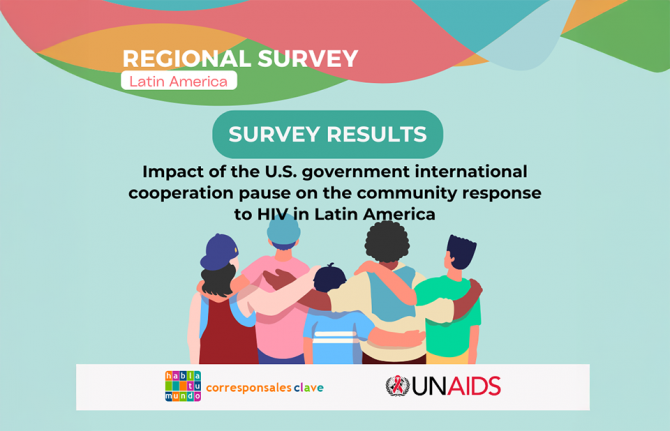

Feature Story
REDLACTRANS’ struggle for transgender rights
01 October 2018
01 October 2018 01 October 2018There are still alarming levels of violence against transgender people, and a lack of recognition of their rights. During a visit to UNAIDS headquarters in Geneva, Switzerland, on 18 September, Marcela Romero and Venus Tejada, representatives of the Latin American and Caribbean Network of Transgender People (REDLACTRANS), shared the startling fact that transgender women in the region have a life expectancy of only 35 years.
During the visit, Ms Romero and Ms Tejada met with the UNAIDS Executive Director, Michel Sidibé, and spoke about REDLACTRANS’ work in 13 countries. A grant to REDLACTRANS from the Global Fund to Fight AIDS, Tuberculosis and Malaria helped to establish a centre that collects testimonies and follows up cases of human rights violations committed against transgender women in Latin America and the Caribbean.
“Stigma, discrimination and violence against sexual and gender minorities prevent them from accessing health services,” said Mr Sidibé. “Everyone has the right to health, no matter their gender or sexual orientation. For that, we need zero discrimination for everyone, everywhere.”
Ms Romero and Ms Tejada also presented Mr Sidibé with a copy of REDLACTRANS’ report, Waiting to die, which compiles cases of human rights violations against transgender people and gives recommendations to decision-makers.
“Stigma and discrimination is a barrier to the services we need to stay healthy. Some transgender women are dying due to lack of access to treatment. Without comprehensive health care, there are no equal rights nor true democracy,” said Ms Romero
Since its creation in 2006, REDLACTRANS has promoted the development of gender identity laws. In Argentina, the Plurinational State of Bolivia, three federal districts of Mexico and Uruguay, where gender identity laws have been enacted, transgender rights are increasingly enforced and, consequently, transgender people can access health-care services. Such laws have brought about positive changes in the services provided to transgender people and resulted in less stigma and discrimination in health-care settings. “Without identification, one cannot travel, register for school or access many services that are essential to function in society,” said Ms Tejada.
Ms Romero and Ms Tejada called on UNAIDS to address how forced migration, persistent inequalities and poverty affect the quality of life of transgender women.



